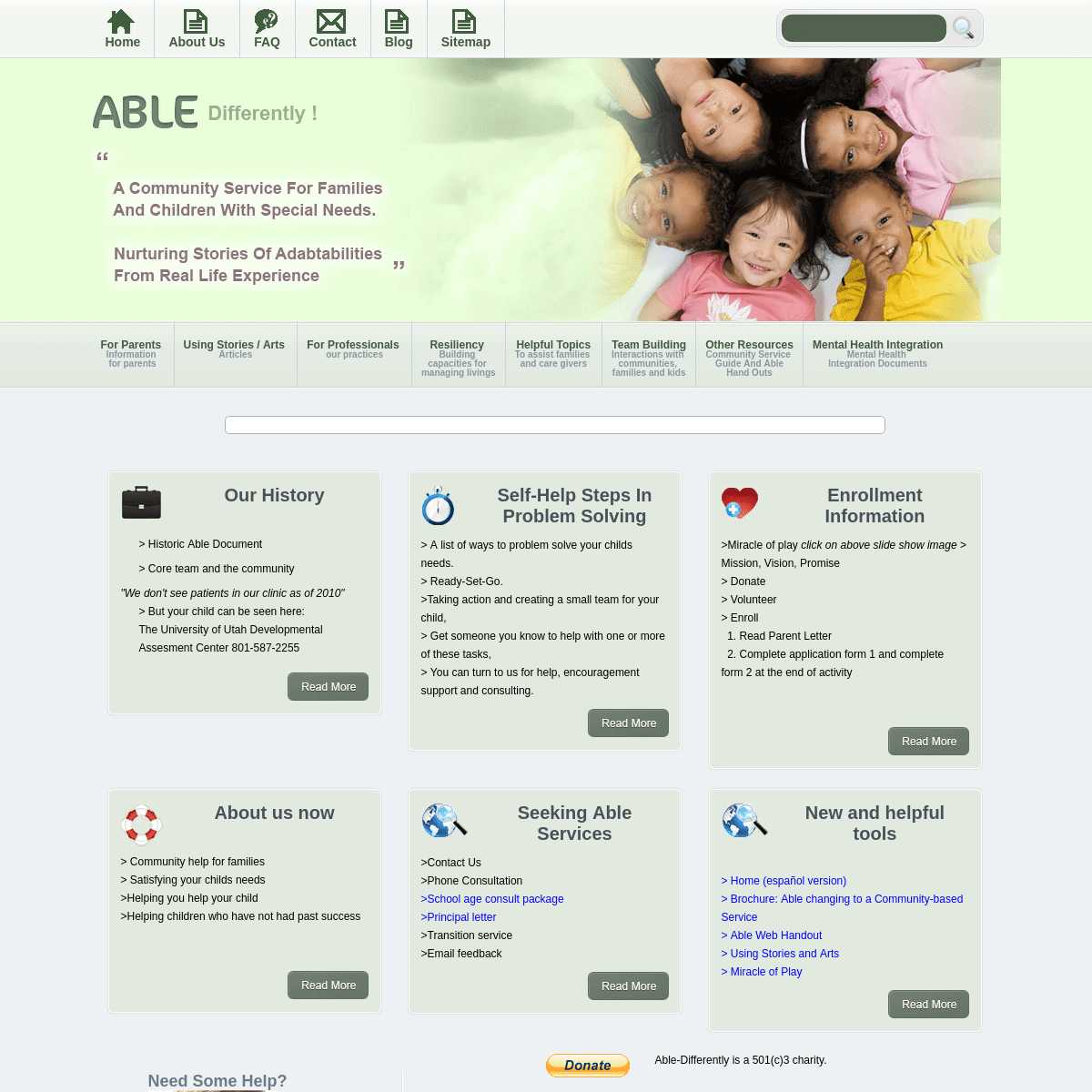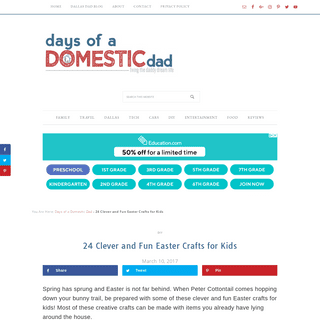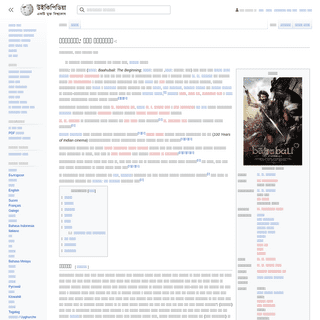Are you over 18 and want to see adult content?
More Annotations

A complete backup of https://helixesg.com
Are you over 18 and want to see adult content?

A complete backup of https://healthandhealthyliving.com
Are you over 18 and want to see adult content?

A complete backup of https://nbplc.com
Are you over 18 and want to see adult content?
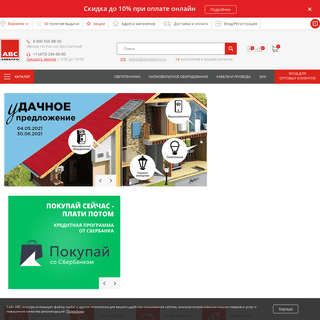
A complete backup of https://avselectro.ru
Are you over 18 and want to see adult content?

A complete backup of https://tltsolicitors.com
Are you over 18 and want to see adult content?

A complete backup of https://windermere.com
Are you over 18 and want to see adult content?

A complete backup of https://skk-net.com
Are you over 18 and want to see adult content?

A complete backup of https://homecleaningkw.com
Are you over 18 and want to see adult content?

A complete backup of https://diverightinscuba.com
Are you over 18 and want to see adult content?

A complete backup of https://vyper.io
Are you over 18 and want to see adult content?

A complete backup of https://renovaelx.es
Are you over 18 and want to see adult content?
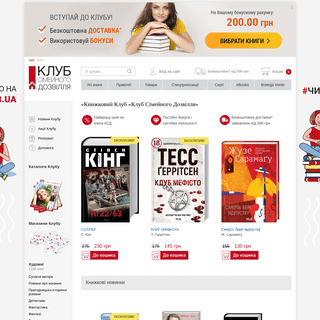
A complete backup of https://bookclub.ua
Are you over 18 and want to see adult content?
Favourite Annotations

A complete backup of https://ura99.com/%e3%83%81%e3%82%a256/
Are you over 18 and want to see adult content?

A complete backup of https://www.kaufmich.com/BlackvelvetHannah
Are you over 18 and want to see adult content?

A complete backup of https://x.yump3.ws/descargar-mp3/la-insuperable-2020
Are you over 18 and want to see adult content?

A complete backup of https://sd30.senate.ca.gov/
Are you over 18 and want to see adult content?

A complete backup of https://trikepatrol.com/model/alex-zarate/
Are you over 18 and want to see adult content?

A complete backup of https://teniesonline.gr/seires/?m=Arrow&t=tt2193021
Are you over 18 and want to see adult content?
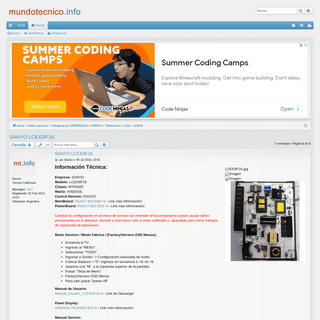
A complete backup of https://www.mundotecnico.info/viewtopic.php?t=2180
Are you over 18 and want to see adult content?
Text
801-587-2255.
COMMONLY USED ASSESSMENT TOOLS « ABLE-DIFFERENTLY Commonly Used Assessment Tools. The following list contains commonly used tests by categories for the assessment of children and youth. Tests listed are based on common usage, not preference for publisher. Buros Book of Measurement provides a current and comprehensive listing of all published tests, the publishers and a summary of the validity PSYCHO-EDUCATIONAL EVALUATION « ABLE-DIFFERENTLY Clinical and psycho-educational evaluation is defined as a set of assessment procedures administered and interpreted to obtain information about the child’s development, learning, memory, academics, behavior and mental health. Different assessment procedures, or combination of procedures, are used, depending upon thereferral questions
EARLY CHILDHOOD SEPARATION FROM PARENTS « ABLE-DIFFERENTLY Early Childhood Separation from Parents General Guidelines for Emotional Well-being Overnight Visits Separation Sensitivity Prior to Age Two When Parents are Divorced Parent/s’ Only Trip Away from Home Separation as a Growth Experience Activities to Help the Child Understand and be Reassured W ACTIVITY PARENT LETTER « ABLE-DIFFERENTLY Activity Parent Letter. Dear Parent, Print. At Able-Differently, we hope to provide your child with the opportunity to participate in a wished-for, or meaningful, favored activity. By enabling your child to participate in this rewarding experience, we hope to give your child the opportunity to follow their hopes and dreams through positive PLAY OBSERVATION CHECKLIST Content of Play Observed Yes No Comments / Questions Behavior Child shows a positive emotional tone in play Child throws or destroys play A STRENGTHS PERSPECTIVE AND SOLUTION-FOCUSED APPROACH TO past and present successes in building a solution. This not only empowers the client by allowing them to “discover the considerable power within themselves” (Saleeby, 1992, p.8), but assists the client in “conceptualizing their own world ATTACHMENT MEASURES IN CHILDREN Attachment measures in children Attachment measures for children. There are a variety of measures used in the literature to assess a child's pattern of attachment. CHILD STRENGTHS CHECKLIST Child Strengths Checklist Child's name Person filling checklist out Date: Below is a list of positive or good behaviors. Please make an "X" to indicate where your child is in each of these areas, rating FAMILY STRENGTHS ASSESSMENT FAMILY STRENGTHS ASSESSMENT . Shirlynn Rowley, Lincs, Inc . Date: _____ Dear Parent /Caregiver . Welcome. This assessment is designed to serve the following purposes: ABLE-DIFFERENTLYSTORY FOUNDATIONSPHONE DIRECTORYDONATEINTERVENTIONSRESOURCE MANUALFOR PARENTS Our History. > Historic Able Document. > Core team and the community. "We don't see patients in our clinic as of 2010". > But your child can be seen here: The University of Utah Developmental Assesment Center801-587-2255.
COMMONLY USED ASSESSMENT TOOLS « ABLE-DIFFERENTLY Commonly Used Assessment Tools. The following list contains commonly used tests by categories for the assessment of children and youth. Tests listed are based on common usage, not preference for publisher. Buros Book of Measurement provides a current and comprehensive listing of all published tests, the publishers and a summary of the validity PSYCHO-EDUCATIONAL EVALUATION « ABLE-DIFFERENTLY Clinical and psycho-educational evaluation is defined as a set of assessment procedures administered and interpreted to obtain information about the child’s development, learning, memory, academics, behavior and mental health. Different assessment procedures, or combination of procedures, are used, depending upon thereferral questions
EARLY CHILDHOOD SEPARATION FROM PARENTS « ABLE-DIFFERENTLY Early Childhood Separation from Parents General Guidelines for Emotional Well-being Overnight Visits Separation Sensitivity Prior to Age Two When Parents are Divorced Parent/s’ Only Trip Away from Home Separation as a Growth Experience Activities to Help the Child Understand and be Reassured W ACTIVITY PARENT LETTER « ABLE-DIFFERENTLY Activity Parent Letter. Dear Parent, Print. At Able-Differently, we hope to provide your child with the opportunity to participate in a wished-for, or meaningful, favored activity. By enabling your child to participate in this rewarding experience, we hope to give your child the opportunity to follow their hopes and dreams through positive PLAY OBSERVATION CHECKLIST Content of Play Observed Yes No Comments / Questions Behavior Child shows a positive emotional tone in play Child throws or destroys play A STRENGTHS PERSPECTIVE AND SOLUTION-FOCUSED APPROACH TO past and present successes in building a solution. This not only empowers the client by allowing them to “discover the considerable power within themselves” (Saleeby, 1992, p.8), but assists the client in “conceptualizing their own world ATTACHMENT MEASURES IN CHILDREN Attachment measures in children Attachment measures for children. There are a variety of measures used in the literature to assess a child's pattern of attachment. CHILD STRENGTHS CHECKLIST Child Strengths Checklist Child's name Person filling checklist out Date: Below is a list of positive or good behaviors. Please make an "X" to indicate where your child is in each of these areas, rating FAMILY STRENGTHS ASSESSMENT FAMILY STRENGTHS ASSESSMENT . Shirlynn Rowley, Lincs, Inc . Date: _____ Dear Parent /Caregiver . Welcome. This assessment is designed to serve the following purposes:ABLE-DIFFERENTLY
Our History. > Historic Able Document. > Core team and the community. "We don't see patients in our clinic as of 2010". > But your child can be seen here: The University of Utah Developmental Assesment Center801-587-2255.
COMMONLY USED ASSESSMENT TOOLS « ABLE-DIFFERENTLY Commonly Used Assessment Tools. The following list contains commonly used tests by categories for the assessment of children and youth. Tests listed are based on common usage, not preference for publisher. Buros Book of Measurement provides a current and comprehensive listing of all published tests, the publishers and a summary of the validity FORMS AND HANDOUTS « ABLE-DIFFERENTLY FORMS. Family Health Promotion Plan (weaves meaningful story threads that promote child-family strengths) Quality-of-Life Outcome Measures (QOM) (cumulative parent’s opinion of child’s progress over time that includes the following four QoLM) Comfort/Hassle Scales SUBJECTIVE WELL-BEING INTERVENTION PROGRAM Subjective Well-Being Intervention Program Procedures Manual Wellness-Promotion Groups with 6th Grade Children Shannon M. Suldo, Ph.D. Assistant Professor of School Psychology ATTACHMENT MEASURES IN CHILDREN Attachment measures in children Attachment measures for children. There are a variety of measures used in the literature to assess a child's pattern of attachment. AND ATTACHMENT DISORDER In the clinical sense, a disorder is a condition requiring treatment as opposed to risk factors for subsequent disorders.(AACAP 2005, p1208) There is a lack of consensus about the precise meaning of the term 'attachment disorder' although there is general agreement that such disorders only arise ADD - Z NARRATIVE THERAPY - ABLE-DIFFERENTLY Narrative Therapy by Hermann A. Peine, Ph.D. and Louis S. Allen, M.D. Adapted from the book - What is Narrative Therapy? by Alice Morgan * Narrative therapy is a non-blaming approach to human problems. FAMILY STRENGTHS ASSESSMENT FAMILY STRENGTHS ASSESSMENT . Shirlynn Rowley, Lincs, Inc . Date: _____ Dear Parent /Caregiver . Welcome. This assessment is designed to serve the following purposes: FOUR GENERATION FAMILY GENOGRAM Heart Enduranc 40 Y/O Sally 10 Y/O Donni 15 y/o Kell 1 Y/O Jane Old Age Survived Multiple Illnesses Suicid e Immigrated From Mexico FUNCTIONAL BEHAVIORAL ASSESSMENT Functional Behavioral Assessment Name_____ DOB _____ Scatterplot Week of: _____ Daily Schedule Analysis—first step in understanding child’s behavior. Record each incidence of disruptive or non compliant behavior with each check( / ) as a separate event. An open box without checks represents CONTACT US « ABLE-DIFFERENTLY Contact Us - Seeking ABLE Services PO Box 9757 Salt Lake City, Utah, 84109 801-520-7376 info@able-differently.org Flexible Program Phone Consultation Teaming School Contact Consult School Age Package Transition Services for Youth English application and ACTIVITY PARENT LETTER « ABLE-DIFFERENTLY Activity Parent Letter. Dear Parent, Print. At Able-Differently, we hope to provide your child with the opportunity to participate in a wished-for, or meaningful, favored activity. By enabling your child to participate in this rewarding experience, we hope to give your child the opportunity to follow their hopes and dreams through positive PSYCHO-EDUCATIONAL EVALUATION « ABLE-DIFFERENTLY Clinical and psycho-educational evaluation is defined as a set of assessment procedures administered and interpreted to obtain information about the child’s development, learning, memory, academics, behavior and mental health. Different assessment procedures, or combination of procedures, are used, depending upon thereferral questions
EARLY CHILDHOOD SEPARATION FROM PARENTS « ABLE-DIFFERENTLY Early Childhood Separation from Parents General Guidelines for Emotional Well-being Overnight Visits Separation Sensitivity Prior to Age Two When Parents are Divorced Parent/s’ Only Trip Away from Home Separation as a Growth Experience Activities to Help the Child Understand and be Reassured W CHILD STRENGTHS CHECKLIST Child Strengths Checklist Child's name Person filling checklist out Date: Below is a list of positive or good behaviors. Please make an "X" to indicate where your child is in each of these areas, rating PLAY OBSERVATION CHECKLIST Content of Play Observed Yes No Comments / Questions Behavior Child shows a positive emotional tone in play Child throws or destroys play SUBJECTIVE WELL-BEING INTERVENTION PROGRAM Subjective Well-Being Intervention Program Procedures Manual Wellness-Promotion Groups with 6th Grade Children Shannon M. Suldo, Ph.D. Assistant Professor of School Psychology CHILD DEVELOPMENT AND THE ACQUISITION OF LITERACY SKILLS Child Development and the Acquisition of Literacy SkillsAdapted from a Grand Rounds Presentation at Primary Children's Medical Center Salt Lake City, Utah 3.29.2007 Perri Klass, MD Motivation “Perhaps the best way of inspiring a young child ATTACHMENT MEASURES IN CHILDREN Attachment measures in children Attachment measures for children. There are a variety of measures used in the literature to assess a child's pattern of attachment. A STRENGTHS PERSPECTIVE AND SOLUTION-FOCUSED APPROACH TO past and present successes in building a solution. This not only empowers the client by allowing them to “discover the considerable power within themselves” (Saleeby, 1992, p.8), but assists the client in “conceptualizing their own world CONTACT US « ABLE-DIFFERENTLY Contact Us - Seeking ABLE Services PO Box 9757 Salt Lake City, Utah, 84109 801-520-7376 info@able-differently.org Flexible Program Phone Consultation Teaming School Contact Consult School Age Package Transition Services for Youth English application and ACTIVITY PARENT LETTER « ABLE-DIFFERENTLY Activity Parent Letter. Dear Parent, Print. At Able-Differently, we hope to provide your child with the opportunity to participate in a wished-for, or meaningful, favored activity. By enabling your child to participate in this rewarding experience, we hope to give your child the opportunity to follow their hopes and dreams through positive PSYCHO-EDUCATIONAL EVALUATION « ABLE-DIFFERENTLY Clinical and psycho-educational evaluation is defined as a set of assessment procedures administered and interpreted to obtain information about the child’s development, learning, memory, academics, behavior and mental health. Different assessment procedures, or combination of procedures, are used, depending upon thereferral questions
EARLY CHILDHOOD SEPARATION FROM PARENTS « ABLE-DIFFERENTLY Early Childhood Separation from Parents General Guidelines for Emotional Well-being Overnight Visits Separation Sensitivity Prior to Age Two When Parents are Divorced Parent/s’ Only Trip Away from Home Separation as a Growth Experience Activities to Help the Child Understand and be Reassured W CHILD STRENGTHS CHECKLIST Child Strengths Checklist Child's name Person filling checklist out Date: Below is a list of positive or good behaviors. Please make an "X" to indicate where your child is in each of these areas, rating PLAY OBSERVATION CHECKLIST Content of Play Observed Yes No Comments / Questions Behavior Child shows a positive emotional tone in play Child throws or destroys play SUBJECTIVE WELL-BEING INTERVENTION PROGRAM Subjective Well-Being Intervention Program Procedures Manual Wellness-Promotion Groups with 6th Grade Children Shannon M. Suldo, Ph.D. Assistant Professor of School Psychology CHILD DEVELOPMENT AND THE ACQUISITION OF LITERACY SKILLS Child Development and the Acquisition of Literacy SkillsAdapted from a Grand Rounds Presentation at Primary Children's Medical Center Salt Lake City, Utah 3.29.2007 Perri Klass, MD Motivation “Perhaps the best way of inspiring a young child ATTACHMENT MEASURES IN CHILDREN Attachment measures in children Attachment measures for children. There are a variety of measures used in the literature to assess a child's pattern of attachment. A STRENGTHS PERSPECTIVE AND SOLUTION-FOCUSED APPROACH TO past and present successes in building a solution. This not only empowers the client by allowing them to “discover the considerable power within themselves” (Saleeby, 1992, p.8), but assists the client in “conceptualizing their own world ABOUT US « ABLE-DIFFERENTLY En Español Note: The slide presentations are in the MS PowerPoint file format. About Us Slide Presentation Slide Presentation on ABLE and the Schools ABLE changing to: While Continuing to Build: Adapta- -Bilities from Learning Environments ABLE-differently, a FOR PROFESSIONALS « ABLE-DIFFERENTLY Part I: Shared Conversations – When a family comes to us, we attempt to understand, acknowledge and respect their unique experience.. Part II: Sharing Mindful Talk – We assess, from multiple viewpoints, strengths and challenges facing the child and family.. Part III: Child-Family Connections -Taking Action Together – We look at ways to connect the child to the larger community and to the CONTACT US « ABLE-DIFFERENTLY Contact Us - Seeking ABLE Services PO Box 9757 Salt Lake City, Utah, 84109 801-520-7376 info@able-differently.org Flexible Program Phone Consultation Teaming School Contact Consult School Age Package Transition Services for Youth English application and ABLE HEALTH MODEL « ABLE-DIFFERENTLY The historic ABLE Health Model: (archived document of a seminal program and its conceptual basis under Utah Dept of Health-1984-2010) Supported Families in the Community Who We Helped How It Helps How a Core Team Gathering Functions Community Use of the Core Team Approach Who We Help: The ABLE team PSYCHO-EDUCATIONAL EVALUATION « ABLE-DIFFERENTLY Clinical and psycho-educational evaluation is defined as a set of assessment procedures administered and interpreted to obtain information about the child’s development, learning, memory, academics, behavior and mental health. Different assessment procedures, or combination of procedures, are used, depending upon thereferral questions
NARRATIVE PRACTICE « ABLE-DIFFERENTLY Curiosity and a willingness to ask questions, coupled with a willingness to be co-active, authentic and transparent in the story’s co-conceptualization and reformulation are essential components of this intervention process. Journaling stories can be a form of narrative practice for those who follow some basic rules ofthe process.
EXPRESSIVE ARTS « ABLE-DIFFERENTLY Expressive Arts. Stories Using the Expressive Arts. We feel before verbal symbols (oral language) can be efficiently and ethically utilized, some prerequisite conditions should be met. These include but are not limited to: The creation of an underlying safety net, especially for children. Assisting the child to feel a sense ofbelonging.
CHILD DEVELOPMENT AND THE ACQUISITION OF LITERACY SKILLS Child Development and the Acquisition of Literacy SkillsAdapted from a Grand Rounds Presentation at Primary Children's Medical Center Salt Lake City, Utah 3.29.2007 Perri Klass, MD Motivation “Perhaps the best way of inspiring a young child ATTACHMENT MEASURES IN CHILDREN Attachment measures in children Attachment measures for children. There are a variety of measures used in the literature to assess a child's pattern of attachment. TEAM MANAGEMENT RATING SCALE Team Management Rating Scale Child: Age: School: Grade: _____ Date: Please rate today’s meeting honestly on the following descriptions by circling the numbers CONTACT US « ABLE-DIFFERENTLY Contact Us - Seeking ABLE Services PO Box 9757 Salt Lake City, Utah, 84109 801-520-7376 info@able-differently.org Flexible Program Phone Consultation Teaming School Contact Consult School Age Package Transition Services for Youth English application and ACTIVITY PARENT LETTER « ABLE-DIFFERENTLY Activity Parent Letter. Dear Parent, Print. At Able-Differently, we hope to provide your child with the opportunity to participate in a wished-for, or meaningful, favored activity. By enabling your child to participate in this rewarding experience, we hope to give your child the opportunity to follow their hopes and dreams through positive PSYCHO-EDUCATIONAL EVALUATION « ABLE-DIFFERENTLY Clinical and psycho-educational evaluation is defined as a set of assessment procedures administered and interpreted to obtain information about the child’s development, learning, memory, academics, behavior and mental health. Different assessment procedures, or combination of procedures, are used, depending upon thereferral questions
EARLY CHILDHOOD SEPARATION FROM PARENTS « ABLE-DIFFERENTLY Early Childhood Separation from Parents General Guidelines for Emotional Well-being Overnight Visits Separation Sensitivity Prior to Age Two When Parents are Divorced Parent/s’ Only Trip Away from Home Separation as a Growth Experience Activities to Help the Child Understand and be Reassured W CHILD STRENGTHS CHECKLIST Child Strengths Checklist Child's name Person filling checklist out Date: Below is a list of positive or good behaviors. Please make an "X" to indicate where your child is in each of these areas, rating PLAY OBSERVATION CHECKLIST Content of Play Observed Yes No Comments / Questions Behavior Child shows a positive emotional tone in play Child throws or destroys play SUBJECTIVE WELL-BEING INTERVENTION PROGRAM Subjective Well-Being Intervention Program Procedures Manual Wellness-Promotion Groups with 6th Grade Children Shannon M. Suldo, Ph.D. Assistant Professor of School Psychology CHILD DEVELOPMENT AND THE ACQUISITION OF LITERACY SKILLS Child Development and the Acquisition of Literacy SkillsAdapted from a Grand Rounds Presentation at Primary Children's Medical Center Salt Lake City, Utah 3.29.2007 Perri Klass, MD Motivation “Perhaps the best way of inspiring a young child ATTACHMENT MEASURES IN CHILDREN Attachment measures in children Attachment measures for children. There are a variety of measures used in the literature to assess a child's pattern of attachment. A STRENGTHS PERSPECTIVE AND SOLUTION-FOCUSED APPROACH TO past and present successes in building a solution. This not only empowers the client by allowing them to “discover the considerable power within themselves” (Saleeby, 1992, p.8), but assists the client in “conceptualizing their own world CONTACT US « ABLE-DIFFERENTLY Contact Us - Seeking ABLE Services PO Box 9757 Salt Lake City, Utah, 84109 801-520-7376 info@able-differently.org Flexible Program Phone Consultation Teaming School Contact Consult School Age Package Transition Services for Youth English application and ACTIVITY PARENT LETTER « ABLE-DIFFERENTLY Activity Parent Letter. Dear Parent, Print. At Able-Differently, we hope to provide your child with the opportunity to participate in a wished-for, or meaningful, favored activity. By enabling your child to participate in this rewarding experience, we hope to give your child the opportunity to follow their hopes and dreams through positive PSYCHO-EDUCATIONAL EVALUATION « ABLE-DIFFERENTLY Clinical and psycho-educational evaluation is defined as a set of assessment procedures administered and interpreted to obtain information about the child’s development, learning, memory, academics, behavior and mental health. Different assessment procedures, or combination of procedures, are used, depending upon thereferral questions
EARLY CHILDHOOD SEPARATION FROM PARENTS « ABLE-DIFFERENTLY Early Childhood Separation from Parents General Guidelines for Emotional Well-being Overnight Visits Separation Sensitivity Prior to Age Two When Parents are Divorced Parent/s’ Only Trip Away from Home Separation as a Growth Experience Activities to Help the Child Understand and be Reassured W CHILD STRENGTHS CHECKLIST Child Strengths Checklist Child's name Person filling checklist out Date: Below is a list of positive or good behaviors. Please make an "X" to indicate where your child is in each of these areas, rating PLAY OBSERVATION CHECKLIST Content of Play Observed Yes No Comments / Questions Behavior Child shows a positive emotional tone in play Child throws or destroys play SUBJECTIVE WELL-BEING INTERVENTION PROGRAM Subjective Well-Being Intervention Program Procedures Manual Wellness-Promotion Groups with 6th Grade Children Shannon M. Suldo, Ph.D. Assistant Professor of School Psychology CHILD DEVELOPMENT AND THE ACQUISITION OF LITERACY SKILLS Child Development and the Acquisition of Literacy SkillsAdapted from a Grand Rounds Presentation at Primary Children's Medical Center Salt Lake City, Utah 3.29.2007 Perri Klass, MD Motivation “Perhaps the best way of inspiring a young child ATTACHMENT MEASURES IN CHILDREN Attachment measures in children Attachment measures for children. There are a variety of measures used in the literature to assess a child's pattern of attachment. A STRENGTHS PERSPECTIVE AND SOLUTION-FOCUSED APPROACH TO past and present successes in building a solution. This not only empowers the client by allowing them to “discover the considerable power within themselves” (Saleeby, 1992, p.8), but assists the client in “conceptualizing their own world ABOUT US « ABLE-DIFFERENTLY En Español Note: The slide presentations are in the MS PowerPoint file format. About Us Slide Presentation Slide Presentation on ABLE and the Schools ABLE changing to: While Continuing to Build: Adapta- -Bilities from Learning Environments ABLE-differently, a FOR PROFESSIONALS « ABLE-DIFFERENTLY Part I: Shared Conversations – When a family comes to us, we attempt to understand, acknowledge and respect their unique experience.. Part II: Sharing Mindful Talk – We assess, from multiple viewpoints, strengths and challenges facing the child and family.. Part III: Child-Family Connections -Taking Action Together – We look at ways to connect the child to the larger community and to the CONTACT US « ABLE-DIFFERENTLY Contact Us - Seeking ABLE Services PO Box 9757 Salt Lake City, Utah, 84109 801-520-7376 info@able-differently.org Flexible Program Phone Consultation Teaming School Contact Consult School Age Package Transition Services for Youth English application and ABLE HEALTH MODEL « ABLE-DIFFERENTLY The historic ABLE Health Model: (archived document of a seminal program and its conceptual basis under Utah Dept of Health-1984-2010) Supported Families in the Community Who We Helped How It Helps How a Core Team Gathering Functions Community Use of the Core Team Approach Who We Help: The ABLE team PSYCHO-EDUCATIONAL EVALUATION « ABLE-DIFFERENTLY Clinical and psycho-educational evaluation is defined as a set of assessment procedures administered and interpreted to obtain information about the child’s development, learning, memory, academics, behavior and mental health. Different assessment procedures, or combination of procedures, are used, depending upon thereferral questions
NARRATIVE PRACTICE « ABLE-DIFFERENTLY Curiosity and a willingness to ask questions, coupled with a willingness to be co-active, authentic and transparent in the story’s co-conceptualization and reformulation are essential components of this intervention process. Journaling stories can be a form of narrative practice for those who follow some basic rules ofthe process.
EXPRESSIVE ARTS « ABLE-DIFFERENTLY Expressive Arts. Stories Using the Expressive Arts. We feel before verbal symbols (oral language) can be efficiently and ethically utilized, some prerequisite conditions should be met. These include but are not limited to: The creation of an underlying safety net, especially for children. Assisting the child to feel a sense ofbelonging.
CHILD DEVELOPMENT AND THE ACQUISITION OF LITERACY SKILLS Child Development and the Acquisition of Literacy SkillsAdapted from a Grand Rounds Presentation at Primary Children's Medical Center Salt Lake City, Utah 3.29.2007 Perri Klass, MD Motivation “Perhaps the best way of inspiring a young child ATTACHMENT MEASURES IN CHILDREN Attachment measures in children Attachment measures for children. There are a variety of measures used in the literature to assess a child's pattern of attachment. TEAM MANAGEMENT RATING SCALE Team Management Rating Scale Child: Age: School: Grade: _____ Date: Please rate today’s meeting honestly on the following descriptions by circling the numbers ABLE-DIFFERENTLYSTORY FOUNDATIONSPHONE DIRECTORYDONATEINTERVENTIONSRESOURCE MANUALFOR PARENTS > Historic Able Document > Core team and the community "We don't see patients in our clinic as of 2010" > But your child can be seen here: The University of Utah Developmental Assesment Center 801-587-2255 ACTIVITY PARENT LETTER « ABLE-DIFFERENTLYCOVER LETTER LESSONLEARNING LETTER ACTIVITIES FOR PRESCHOOLERSLETTER V PRESCHOOL ACTIVITIESSAMPLE LETTER TO PRESCHOOL PARENTSTEACHER LETTER TO PARENTS PRESCHOOL Dear Parent, Print At Able-Differently, we hope to provide your child with the opportunity to participate in a wished-for, or meaningful,favored activity.
PSYCHO-EDUCATIONAL EVALUATION « ABLE-DIFFERENTLY What is a psychological evaluation or psycho-educational evaluation? Clinical and psycho-educational evaluation is defined as a set of assessment procedures administered and interpreted to obtain information about the child’s development, learning, memory, academics, behavior and mental health. EARLY CHILDHOOD SEPARATION FROM PARENTS « ABLE-DIFFERENTLY Early Childhood Separation from Parents General Guidelines for Emotional Well-being Overnight Visits Separation Sensitivity Prior to Age Two When Parents are Divorced Parent/s’ Only Trip Away from Home Separation as a Growth Experience Activities to Help the Child Understand and be Reassured W A STRENGTHS PERSPECTIVE AND SOLUTION-FOCUSED APPROACH TO past and present successes in building a solution. This not only empowers the client by allowing them to “discover the considerable power within themselves” (Saleeby, 1992, p.8), but assists the client in “conceptualizing their own world SUBJECTIVE WELL-BEING INTERVENTION PROGRAMSUBJECTIVE WELL BEING AND INTELLIGENCESUBJECTIVE WELL BEING AND RELIGIONSUBJECTIVE WELL BEING MEANINGSUBJECTIVE WELL BEING PDFSUBJECTIVE WELL BEING SCALESUBJECTIVE WELL BEING SCALE PDF Subjective Well-Being Intervention Program Procedures Manual Wellness-Promotion Groups with 6th Grade Children Shannon M. Suldo, Ph.D. Assistant Professor of School Psychology ATTACHMENT MEASURES IN CHILDREN Attachment measures in children Attachment measures for children. There are a variety of measures used in the literature to assess a child's pattern of attachment. PLAY OBSERVATION CHECKLIST Content of Play Observed Yes No Comments / Questions Behavior Child shows a positive emotional tone in play Child throws or destroys play CHILD STRENGTHS CHECKLIST Child Strengths Checklist Child's name Person filling checklist out Date: Below is a list of positive or good behaviors. Please make an "X" to indicate where your child is in each of these areas, rating PUBLIC PROPOSAL ADDRESSING CHILDRENS MENTAL HEALTH NEEDS family advocacy groups, such as the Utah Parent Center, National Alliance on Mental Illness, Allies for Children’s Mental Health, Family Voices and Links for self-help and a political voice. The School is the structured academic and social learning center, which provides a protected environment ABLE-DIFFERENTLYSTORY FOUNDATIONSPHONE DIRECTORYDONATEINTERVENTIONSRESOURCE MANUALFOR PARENTS > Historic Able Document > Core team and the community "We don't see patients in our clinic as of 2010" > But your child can be seen here: The University of Utah Developmental Assesment Center 801-587-2255 ACTIVITY PARENT LETTER « ABLE-DIFFERENTLYCOVER LETTER LESSONLEARNING LETTER ACTIVITIES FOR PRESCHOOLERSLETTER V PRESCHOOL ACTIVITIESSAMPLE LETTER TO PRESCHOOL PARENTSTEACHER LETTER TO PARENTS PRESCHOOL Dear Parent, Print At Able-Differently, we hope to provide your child with the opportunity to participate in a wished-for, or meaningful,favored activity.
PSYCHO-EDUCATIONAL EVALUATION « ABLE-DIFFERENTLY What is a psychological evaluation or psycho-educational evaluation? Clinical and psycho-educational evaluation is defined as a set of assessment procedures administered and interpreted to obtain information about the child’s development, learning, memory, academics, behavior and mental health. EARLY CHILDHOOD SEPARATION FROM PARENTS « ABLE-DIFFERENTLY Early Childhood Separation from Parents General Guidelines for Emotional Well-being Overnight Visits Separation Sensitivity Prior to Age Two When Parents are Divorced Parent/s’ Only Trip Away from Home Separation as a Growth Experience Activities to Help the Child Understand and be Reassured W A STRENGTHS PERSPECTIVE AND SOLUTION-FOCUSED APPROACH TO past and present successes in building a solution. This not only empowers the client by allowing them to “discover the considerable power within themselves” (Saleeby, 1992, p.8), but assists the client in “conceptualizing their own world SUBJECTIVE WELL-BEING INTERVENTION PROGRAMSUBJECTIVE WELL BEING AND INTELLIGENCESUBJECTIVE WELL BEING AND RELIGIONSUBJECTIVE WELL BEING MEANINGSUBJECTIVE WELL BEING PDFSUBJECTIVE WELL BEING SCALESUBJECTIVE WELL BEING SCALE PDF Subjective Well-Being Intervention Program Procedures Manual Wellness-Promotion Groups with 6th Grade Children Shannon M. Suldo, Ph.D. Assistant Professor of School Psychology ATTACHMENT MEASURES IN CHILDREN Attachment measures in children Attachment measures for children. There are a variety of measures used in the literature to assess a child's pattern of attachment. PLAY OBSERVATION CHECKLIST Content of Play Observed Yes No Comments / Questions Behavior Child shows a positive emotional tone in play Child throws or destroys play CHILD STRENGTHS CHECKLIST Child Strengths Checklist Child's name Person filling checklist out Date: Below is a list of positive or good behaviors. Please make an "X" to indicate where your child is in each of these areas, rating PUBLIC PROPOSAL ADDRESSING CHILDRENS MENTAL HEALTH NEEDS family advocacy groups, such as the Utah Parent Center, National Alliance on Mental Illness, Allies for Children’s Mental Health, Family Voices and Links for self-help and a political voice. The School is the structured academic and social learning center, which provides a protected environmentABLE-DIFFERENTLY
> Historic Able Document > Core team and the community "We don't see patients in our clinic as of 2010" > But your child can be seen here: The University of Utah Developmental Assesment Center 801-587-2255 ABOUT US « ABLE-DIFFERENTLY En Español Note: The slide presentations are in the MS PowerPoint file format. About Us Slide Presentation Slide Presentation on ABLE and the Schools ABLE changing to: While Continuing to Build: Adapta- -Bilities from Learning Environments ABLE-differently, a FOR PROFESSIONALS « ABLE-DIFFERENTLY Part I: Shared Conversations – When a family comes to us, we attempt to understand, acknowledge and respect their unique experience.. Part II: Sharing Mindful Talk – We assess, from multiple viewpoints, strengths and challenges facing the child and family.. Part III: Child-Family Connections -Taking Action Together – We look at ways to connect the child to the larger community and to the ABLE HEALTH MODEL « ABLE-DIFFERENTLY The historic ABLE Health Model: (archived document of a seminal program and its conceptual basis under Utah Dept of Health-1984-2010) Supported Families in the Community Who We Helped How It Helps How a Core Team Gathering Functions Community Use of the Core Team Approach Who We Help: The ABLE team STORY FOUNDATIONS « ABLE-DIFFERENTLY The Foundations of the Narrative Approach – Narrative Origins Many individuals have experienced sitting around a burning campfire with its associated warmth, illumination, and sense of safety. Groups of people in such a setting often find it natural to include the tellingof tales.
EXPRESSIVE ARTS « ABLE-DIFFERENTLY Stories Using the Expressive Arts We feel before verbal symbols (oral language) can be efficiently and ethically utilized, some prerequisite conditions should be met. These include but are not limited to: The creation of an underlying safety net, especially for children. CHILD STRENGTHS CHECKLIST Child Strengths Checklist Child's name Person filling checklist out Date: Below is a list of positive or good behaviors. Please make an "X" to indicate where your child is in each of these areas, rating ATTACHMENT MEASURES IN CHILDREN Attachment measures in children Attachment measures for children. There are a variety of measures used in the literature to assess a child's pattern of attachment. CHILD DEVELOPMENT AND THE ACQUISITION OF LITERACY SKILLS Child Development and the Acquisition of Literacy SkillsAdapted from a Grand Rounds Presentation at Primary Children's Medical Center Salt Lake City, Utah 3.29.2007 Perri Klass, MD Motivation “Perhaps the best way of inspiring a young child TEAM MANAGEMENT RATING SCALE Team Management Rating Scale Child: Age: School: Grade: _____ Date: Please rate today’s meeting honestly on the following descriptions by circling the numbers ABLE-DIFFERENTLYSTORY FOUNDATIONSPHONE DIRECTORYDONATEINTERVENTIONSRESOURCE MANUALFOR PARENTS > Historic Able Document > Core team and the community "We don't see patients in our clinic as of 2010" > But your child can be seen here: The University of Utah Developmental Assesment Center 801-587-2255 ACTIVITY PARENT LETTER « ABLE-DIFFERENTLYCOVER LETTER LESSONLEARNING LETTER ACTIVITIES FOR PRESCHOOLERSLETTER V PRESCHOOL ACTIVITIESSAMPLE LETTER TO PRESCHOOL PARENTSTEACHER LETTER TO PARENTS PRESCHOOL Dear Parent, Print At Able-Differently, we hope to provide your child with the opportunity to participate in a wished-for, or meaningful,favored activity.
PSYCHO-EDUCATIONAL EVALUATION « ABLE-DIFFERENTLY What is a psychological evaluation or psycho-educational evaluation? Clinical and psycho-educational evaluation is defined as a set of assessment procedures administered and interpreted to obtain information about the child’s development, learning, memory, academics, behavior and mental health. EARLY CHILDHOOD SEPARATION FROM PARENTS « ABLE-DIFFERENTLY Early Childhood Separation from Parents General Guidelines for Emotional Well-being Overnight Visits Separation Sensitivity Prior to Age Two When Parents are Divorced Parent/s’ Only Trip Away from Home Separation as a Growth Experience Activities to Help the Child Understand and be Reassured W A STRENGTHS PERSPECTIVE AND SOLUTION-FOCUSED APPROACH TO past and present successes in building a solution. This not only empowers the client by allowing them to “discover the considerable power within themselves” (Saleeby, 1992, p.8), but assists the client in “conceptualizing their own world SUBJECTIVE WELL-BEING INTERVENTION PROGRAMSUBJECTIVE WELL BEING AND INTELLIGENCESUBJECTIVE WELL BEING AND RELIGIONSUBJECTIVE WELL BEING MEANINGSUBJECTIVE WELL BEING PDFSUBJECTIVE WELL BEING SCALESUBJECTIVE WELL BEING SCALE PDF Subjective Well-Being Intervention Program Procedures Manual Wellness-Promotion Groups with 6th Grade Children Shannon M. Suldo, Ph.D. Assistant Professor of School Psychology ATTACHMENT MEASURES IN CHILDREN Attachment measures in children Attachment measures for children. There are a variety of measures used in the literature to assess a child's pattern of attachment. PLAY OBSERVATION CHECKLIST Content of Play Observed Yes No Comments / Questions Behavior Child shows a positive emotional tone in play Child throws or destroys play CHILD STRENGTHS CHECKLIST Child Strengths Checklist Child's name Person filling checklist out Date: Below is a list of positive or good behaviors. Please make an "X" to indicate where your child is in each of these areas, rating PUBLIC PROPOSAL ADDRESSING CHILDRENS MENTAL HEALTH NEEDS family advocacy groups, such as the Utah Parent Center, National Alliance on Mental Illness, Allies for Children’s Mental Health, Family Voices and Links for self-help and a political voice. The School is the structured academic and social learning center, which provides a protected environment ABLE-DIFFERENTLYSTORY FOUNDATIONSPHONE DIRECTORYDONATEINTERVENTIONSRESOURCE MANUALFOR PARENTS > Historic Able Document > Core team and the community "We don't see patients in our clinic as of 2010" > But your child can be seen here: The University of Utah Developmental Assesment Center 801-587-2255 ACTIVITY PARENT LETTER « ABLE-DIFFERENTLYCOVER LETTER LESSONLEARNING LETTER ACTIVITIES FOR PRESCHOOLERSLETTER V PRESCHOOL ACTIVITIESSAMPLE LETTER TO PRESCHOOL PARENTSTEACHER LETTER TO PARENTS PRESCHOOL Dear Parent, Print At Able-Differently, we hope to provide your child with the opportunity to participate in a wished-for, or meaningful,favored activity.
PSYCHO-EDUCATIONAL EVALUATION « ABLE-DIFFERENTLY What is a psychological evaluation or psycho-educational evaluation? Clinical and psycho-educational evaluation is defined as a set of assessment procedures administered and interpreted to obtain information about the child’s development, learning, memory, academics, behavior and mental health. EARLY CHILDHOOD SEPARATION FROM PARENTS « ABLE-DIFFERENTLY Early Childhood Separation from Parents General Guidelines for Emotional Well-being Overnight Visits Separation Sensitivity Prior to Age Two When Parents are Divorced Parent/s’ Only Trip Away from Home Separation as a Growth Experience Activities to Help the Child Understand and be Reassured W A STRENGTHS PERSPECTIVE AND SOLUTION-FOCUSED APPROACH TO past and present successes in building a solution. This not only empowers the client by allowing them to “discover the considerable power within themselves” (Saleeby, 1992, p.8), but assists the client in “conceptualizing their own world SUBJECTIVE WELL-BEING INTERVENTION PROGRAMSUBJECTIVE WELL BEING AND INTELLIGENCESUBJECTIVE WELL BEING AND RELIGIONSUBJECTIVE WELL BEING MEANINGSUBJECTIVE WELL BEING PDFSUBJECTIVE WELL BEING SCALESUBJECTIVE WELL BEING SCALE PDF Subjective Well-Being Intervention Program Procedures Manual Wellness-Promotion Groups with 6th Grade Children Shannon M. Suldo, Ph.D. Assistant Professor of School Psychology ATTACHMENT MEASURES IN CHILDREN Attachment measures in children Attachment measures for children. There are a variety of measures used in the literature to assess a child's pattern of attachment. PLAY OBSERVATION CHECKLIST Content of Play Observed Yes No Comments / Questions Behavior Child shows a positive emotional tone in play Child throws or destroys play CHILD STRENGTHS CHECKLIST Child Strengths Checklist Child's name Person filling checklist out Date: Below is a list of positive or good behaviors. Please make an "X" to indicate where your child is in each of these areas, rating PUBLIC PROPOSAL ADDRESSING CHILDRENS MENTAL HEALTH NEEDS family advocacy groups, such as the Utah Parent Center, National Alliance on Mental Illness, Allies for Children’s Mental Health, Family Voices and Links for self-help and a political voice. The School is the structured academic and social learning center, which provides a protected environmentABLE-DIFFERENTLY
> Historic Able Document > Core team and the community "We don't see patients in our clinic as of 2010" > But your child can be seen here: The University of Utah Developmental Assesment Center 801-587-2255 ABOUT US « ABLE-DIFFERENTLY En Español Note: The slide presentations are in the MS PowerPoint file format. About Us Slide Presentation Slide Presentation on ABLE and the Schools ABLE changing to: While Continuing to Build: Adapta- -Bilities from Learning Environments ABLE-differently, a FOR PROFESSIONALS « ABLE-DIFFERENTLY Part I: Shared Conversations – When a family comes to us, we attempt to understand, acknowledge and respect their unique experience.. Part II: Sharing Mindful Talk – We assess, from multiple viewpoints, strengths and challenges facing the child and family.. Part III: Child-Family Connections -Taking Action Together – We look at ways to connect the child to the larger community and to the ABLE HEALTH MODEL « ABLE-DIFFERENTLY The historic ABLE Health Model: (archived document of a seminal program and its conceptual basis under Utah Dept of Health-1984-2010) Supported Families in the Community Who We Helped How It Helps How a Core Team Gathering Functions Community Use of the Core Team Approach Who We Help: The ABLE team STORY FOUNDATIONS « ABLE-DIFFERENTLY The Foundations of the Narrative Approach – Narrative Origins Many individuals have experienced sitting around a burning campfire with its associated warmth, illumination, and sense of safety. Groups of people in such a setting often find it natural to include the tellingof tales.
EXPRESSIVE ARTS « ABLE-DIFFERENTLY Stories Using the Expressive Arts We feel before verbal symbols (oral language) can be efficiently and ethically utilized, some prerequisite conditions should be met. These include but are not limited to: The creation of an underlying safety net, especially for children. CHILD STRENGTHS CHECKLIST Child Strengths Checklist Child's name Person filling checklist out Date: Below is a list of positive or good behaviors. Please make an "X" to indicate where your child is in each of these areas, rating ATTACHMENT MEASURES IN CHILDREN Attachment measures in children Attachment measures for children. There are a variety of measures used in the literature to assess a child's pattern of attachment. CHILD DEVELOPMENT AND THE ACQUISITION OF LITERACY SKILLS Child Development and the Acquisition of Literacy SkillsAdapted from a Grand Rounds Presentation at Primary Children's Medical Center Salt Lake City, Utah 3.29.2007 Perri Klass, MD Motivation “Perhaps the best way of inspiring a young child TEAM MANAGEMENT RATING SCALE Team Management Rating Scale Child: Age: School: Grade: _____ Date: Please rate today’s meeting honestly on the following descriptions by circling the numbers*
Home
* English Version
* Español Version
*
About Us
* Spanish Introduction * Slide Presentations* Parent Comments
* ABLE Health Model
*
FAQ
*
Contact
* Commonly Used Assessment Tools * Feedback and Questions * Fast Track Consult* School Policies
*
Blog
*
Sitemap
* For Parents
Information
for parents
* Parenting
* Educating Your Child * Psycho-Educational Evaluation* Other Testing
* Health Issues
* Using Stories / ArtsArticles
* Introduction
* Narrative Medicine* Story Foundations
* Pre-Verbal Experiences* Expressive Arts
* Creating Conversations * Using Children’s Literature * Anatomy of a Story* Michael’s Story
* For Professionals
our practices
* Our Practices
* Resiliency
Building
capacities for
managing livings
* Helpful Topics
To assist families
and care givers
* Interventions
* Diagnostic Poems
* Bullying
* Team Building
Interactions with
communities,
families and kids
* Other Resources
Community Service
Guide And Able
Hand Outs
* Favorite Links
* Phone Directory
* Resource Manual
* Medical Home Services * Forms and Handouts * Utah Satellite Clinics * Mental Health IntegrationMental Health
Integration Documents*
*
*
*
*
Our History
*
> Historic Able Document > Core team and the community _"We don't see patients in our clinic as of 2010"_ > But your child can be seen here: The University of Utah Developmental Assesment Center 801-587-2255 Self-Help Steps In Problem Solving > A list of ways to problem solve your childs needs.> Ready-Set-Go.
>Taking action and creating a small team for your child, > Get someone you know to help with one or more of these tasks, > You can turn to us for help, encouragement support and consulting. Enrollment Information >Miracle of play _click on above slide show image_ > Mission, Vision,Promise
> Donate
> Volunteer
> Enroll
1. Read Parent Letter 2. Complete application form 1 and complete form 2 at the end ofactivity
About us now
> Community help for families > Satisfying your childs needs >Helping you help your child >Helping children who have not had past success Seeking Able Services>Contact Us
>Phone Consultation
>School age consult package>Principal letter
>Transition service
>Email feedback
New and helpful tools > Home (español version) > Brochure: Able changing to a Community-based Service> Able Web Handout
> Using Stories and Arts> Miracle of Play
NEED SOME HELP?
We can offer advice and resources. Just give us a call or contact usonline.
Able-Differently is a 501(c)3 charity.SOCIAL NETWORKS
Follow Us
Copyright © 2019. All rights reserved. Design by Audix Business ServicesDetails
Copyright © 2024 ArchiveBay.com. All rights reserved. Terms of Use | Privacy Policy | DMCA | 2021 | Feedback | Advertising | RSS 2.0
